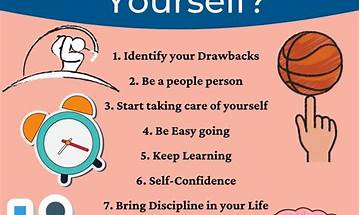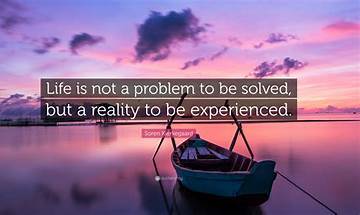If you can't find the meaning of work, it's not your fault.

In life, such a feeling will always appear: obviously doing nothing, but feeling very tired. This kind of tiredness comes more from the fact that one's heart is not clear enough about the question of "why one exists". In the mainstream context, only by creating so-called "value" can a meaningful life be considered, but in fact, "meaning" itself is a false proposition. The sense of powerlessness and fatigue after overwork and constant self-exploitation is also called "burnout syndrome".
Han Bingzhe mentioned in "Burnout Society" that today's human beings seem to have been injected with stimulants as a whole and evolved into a performance machine, trying to maximize their own effectiveness. At this time, life is simplified as a kind of efficiency, causing excessive fatigue and burnout. People have been silently saying "Yes, I can" and are exploiting themselves day and night. Want to say "no" to overtime, want to quit the competition, want to live a life without competition, but don't want to give the world to those you despise. But people seem to be mistaken about their mission. We have built the civilization of the whole society on work, not even on "effective work", but let work itself become our goal and all the meaning.
This is why David Gray's "Meaningless Work" has aroused a serious and heated discussion in the book review community and podcasting community since it was introduced into China. In his book, he reveals a widespread fact-with the development of social economy, more and more "meaningless jobs" have been born in modern society. And when we realize that 40% of the work is meaningless, then what?
"Bullshit job"
"If I come to the company on Monday and find that the whole building is gone, then not only the society doesn't care, but I don't care." This bizarre and depressing confession comes from "Bullshit Jobs" by American anthropologist David Gray Bo.
David Crabbe
David Gray Bo, a famous American anthropologist and sociologist, was a major participant in Occupy Wall Street, and successively served as an associate professor at Yale University and a professor at London School of Economics and Political Science. In a poll he conducted, 37% of migrant workers in Britain and 40% in the Netherlands felt that their jobs were meaningless. If you have had similar thoughts, then you may be stuck in a "bullshit job".
Stills of We Can't Be Beasts
As for "bullshit job", Graber defined it this way: this job has no social value, and even the practitioners themselves feel that this position is unnecessary. Imagine that if some occupations disappear immediately, the world will still run in an orderly way, then these jobs that will not have an impact on society even if they disappear are "bullshit jobs." What is even more frightening is that these jobs may even have negative effects, such as creating consumption anxiety and wasting resources ..... Practitioners have to pretend to love and work hard while despising that their jobs have no social significance. Of course, jobs that are contrary to "bullshit jobs" also exist. If one day medical staff, cleaners, subway drivers and primary and secondary school teachers suddenly disappear, our city and life will face a huge operational crisis.
Ironically, David Graber found that the social value of a job seems to be inversely proportional to the economic value: the average salary of a marketing specialist is much higher than that of a cleaner; The social status of middle-level performance managers in a foreign company is also much higher than that of preschool education. There is a contradiction between the recognition and respect of "nonsense work" from the outside world and the practitioners' own internal cognition of this job, which leads to mental violence and makes practitioners fall into internal friction and self-attack. Even if we constantly use the excuse that "going to work is just to make money" and "work is not worth it" to comfort ourselves, we will feel deep burnout and pain because of the lack of goals and sense of value. Whether it's a programmer who works overtime to fix system failures in a big Internet company or a small clerk who is overwhelmed by the mountains and seas in the bureaucracy, there is no doubt that "bullshit work" will inevitably stifle personal passion and creativity.
Stills of "Life Cutting"
Burnout migrant workers
Compared with endless overtime, David Graber thinks that the more serious harm of "bullshit work" lies in the lack of goals and the hypocrisy of work.
A study by psychologist Carl gruss shows that babies will be extremely happy when they discover for the first time that what they do has a predictable impact on the world, even if the impact can't bring benefits to the baby. Karl gruss concluded that people want to be the cause of something and influence the outside world by their actions-this is an important source of pleasure.
Stills of We Can't Be Beasts
But in some jobs, practitioners can't create value, and it is difficult to really influence others.
For most readers, Graber's Meaningless Work is full of insights and a kind of "profundity": we always hope that work will give short life and meaning, but I don't know that most work is doomed to be dispensable at the beginning of design and can be replaced at any time. Many functions exist only to set off the importance of superiors, show the achievements of leaders and cover up the inaction of organizations. We seem to be working hard, but in fact it is tantamount to a self-moving that we already know the ending.
When a young man finds that the job he is doing is meaningless, but he has to pretend to love and give full play to his talents in his post, this experience will not only lower his self-esteem, but also shake the foundation of his will. After all, most people's dignity and sense of self-worth are closely related to working to make a living, and "bullshit work" has destroyed all this.
Stills of We Can't Be Beasts
Behind the "volume"
As early as 1930, the economist Keynes predicted that when the automation technology was advanced enough, people would enter the leisure time and only need to work 15 hours a week. But the reality is that the prophecy has not been realized, and the whole human society has fallen into a crazy involution competition mode. Then, what is the source of the contradiction that the more technology and industry are developed, the more shit work there is?
Graber also gave two explanations:
First of all, today's capitalism is closer to feudal management. This managerialism originated from feudalism in medieval Europe. In the past, manor owners relied on hiring tenant farmers and gained rich food and wealth. Because they occupy too many resources, poor homeless tenants are bound to fight. To this end, the manor owner provided various positions such as vassals, guards, housekeepers and handmaids, so that poor tenants could make a living and the manor owner could consolidate his position and gain support.
Modern enterprises are almost copies of this system. 1% people have established a system based on the possession and distribution of resources after controlling a large amount of wealth. They constantly increase management and grass-roots employees to maintain the order of the group, and various types of jobs are constantly produced. However, the function of this type of work is not to improve efficiency and output, nor to really create resources and increase social wealth, but to transfer various resources back and forth in this huge system, maintain the existing order and maintain the established power relationship. As a nail worker, your time does not belong to you, but to the person who hires you. The money you earn does not come from the value you create, but is "allocated to a hot soup from the established wealth pool".
Stills of "I, get off work at one o'clock"
On the other hand, the Protestant ethics of capitalism has also shaped a moral concept of "taking work itself as the purpose". What the masses admire is no longer poets, artists or aristocrats in loaf about, but a workaholic CEO who sleeps only five hours a day. Capital praises and beautifies work, making workers give up their leisure, work hard and be willing to work as screws. The "enterprise warrior" in Japan's bubble economy period, or the popular "996 good news" theory among internet giants, are all manifestations of this "work first" moral concept.
Stills of "I, get off work at one o'clock"
In Graber's angry narrative, the essence of capitalism seems obvious: under the promise of "making a big cake" in the free market, everyone's expectations for life and future are exhausted, while under the promise of diligence, work ethics and occupation, everyone's self-worth is consumed.
Faced with such a cruel reality, Graber put forward the idea of anarchism-the basic salary is paid to the whole people, and they can choose their jobs freely on the premise that their lives are basically guaranteed. It's just that the feasibility of this idea is in doubt.
However, meaningless jobs account for only a small part in all walks of life, and no profession itself should be labeled as worthless jobs. Compared with the real problem-solving, Meaningless Work brings sharp insights, enlightening people to reflect on whether there is a similar systematic dilemma in their industry, and enlightening people to stop blindly self-friction and mental attacks.
After all, only when we realize that "nonsense work" is meaningless can we get out of the evaluation system of "work first" and rethink the meaning of our work style and life.
Stills of "I, get off work at one o'clock"
Part of the content comes from Reading Life, a weekend pictorial.
Writing-Riesling
Editor-Emin
Picture-Network
Declaration: All article resources on this website, unless otherwise specified or labeled, are collected from online resources. If the content on this website infringes on the legitimate rights and interests of the original author, you can contact this website to delete it.






